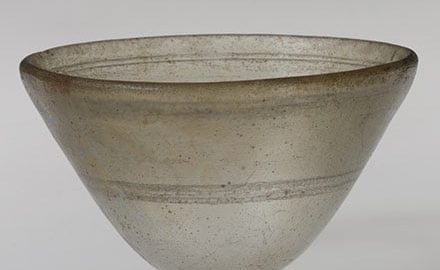Behind Emperor Tiberius, the “duralex“, non-fading glass was invented. Flexible glass (vitrum flexile) is a legendary, forgotten discovery that was lost during the reign of Emperor Tiberius (14-37 CE).
According to a message from Isidore of Seville, the craftsman who invented this technique came to Tiberius with a drinking vessel, supposedly made of flexible glass. Intrigued, the emperor threw the object on the floor, which instead of breaking, only dented. After a while, the craftsman knocked out the dent with a hammer and restored the shape of the bowl to its original state. The inventor has sworn to be the only one who knows how flexible glass is made.
Unexpectedly, Tiberius ordered the man to be shortened by a head, probably fearing that the new form of glass would weaken the value of gold and silver, from which most of the palace items were made. The story was first mentioned by Gaius Petronius and Pliny the Elder, where the latter did not give faith in her. Cassius Dio also talks about the invention of an unknown craftsman.
Pliny and Petronius, who recorded the accident, called unbreakable glass vitrum flexible and said it was made of martiolum. It had to contain some sodium borate, a complex compound of sodium, oxygen and boron. It is the main component of borosilicate glass, i.e. pyrex glass. It is for this reason that it is able to withstand impacts, sudden changes in temperature and the effects of chemicals. The proportion of borates is essential as it introduces bonds to the glass structure which makes it resistant to sudden changes in temperature.






